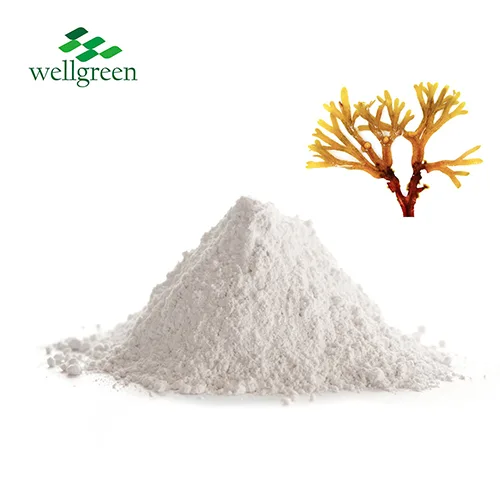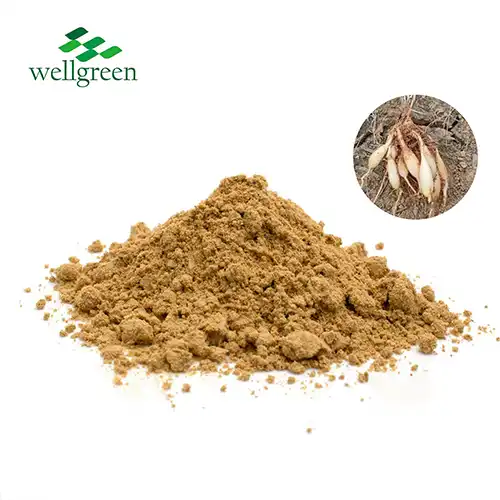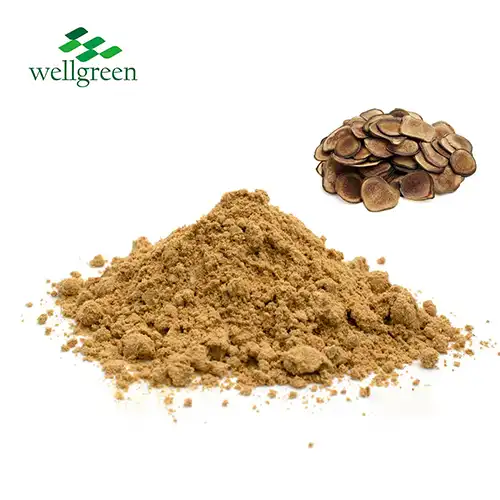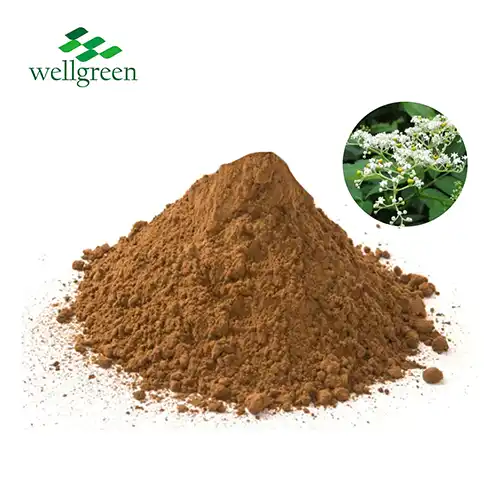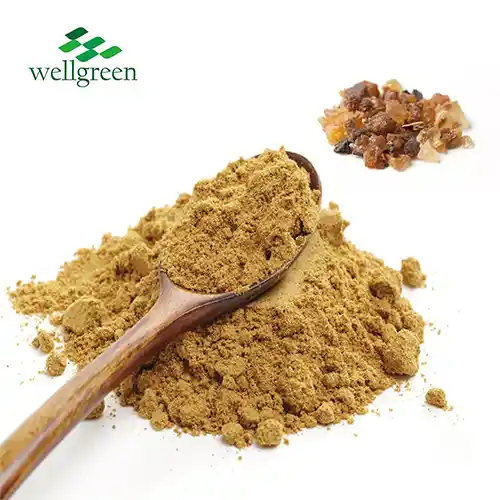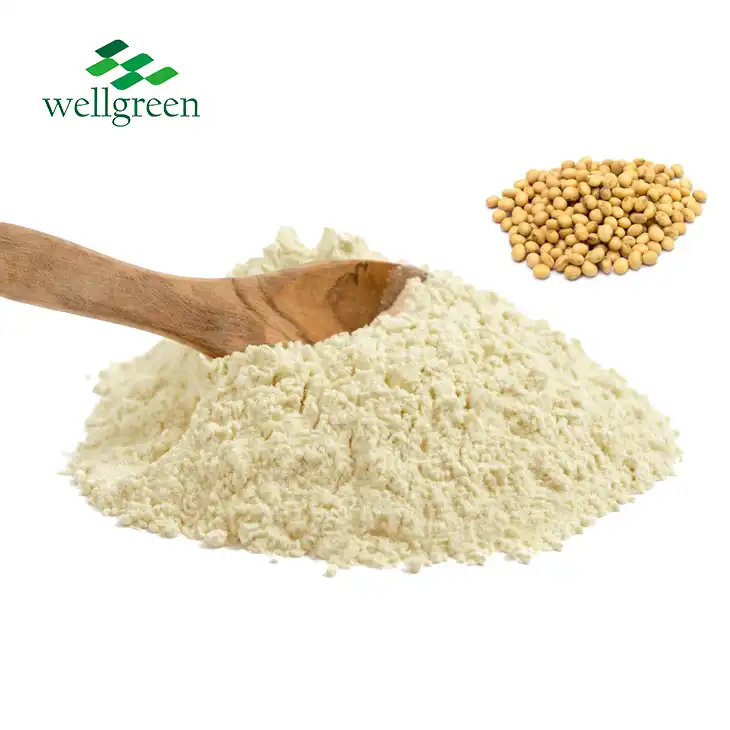Is Soy Peptide Powder Right for You? Find Out Here!
2024-10-25 18:36:40
Soy peptide powder has been gaining popularity in recent years as a versatile and beneficial supplement. But what exactly is it, and could it be the right addition to your health regimen? In this comprehensive guide, we'll explore the ins and outs of soy peptide powder, its potential benefits, and who might benefit most from incorporating it into their diet.
What Are the Health Benefits of Soy Peptide Powder?
Soy peptide powder is derived from soybeans through an enzymatic hydrolysis process, resulting in a concentrated form of bioactive peptides. These small protein fragments offer a range of potential health benefits that have caught the attention of researchers and health enthusiasts alike.
One of the most notable advantages of soy peptide powder is its potential to support cardiovascular health. Studies have shown that soy peptides may help lower cholesterol levels and reduce the risk of heart disease. This is particularly significant given that heart disease remains a leading cause of death worldwide.
Another intriguing benefit of soy peptide powder is its potential role in weight management. Some research suggests that soy peptides may help suppress appetite and promote feelings of fullness, which could be beneficial for those looking to maintain a healthy weight or support weight loss efforts.
Soy peptides have also demonstrated promising anti-inflammatory properties. Chronic inflammation is linked to numerous health issues, including arthritis, diabetes, and certain cancers. By potentially reducing inflammation in the body, soy peptide powder may offer protective effects against these conditions.
For fitness enthusiasts and athletes, soy peptide powder may provide additional benefits. Some studies indicate that soy peptides could help improve muscle recovery after exercise and potentially enhance overall athletic performance. This makes it an attractive option for those looking to optimize their workout results.
Lastly, soy peptide powder is rich in essential amino acids, making it a complete protein source. This is particularly valuable for vegetarians and vegans who may struggle to obtain all necessary amino acids from plant-based sources alone.
Who Should Consider Adding Soy Peptide Powder to Their Nutrition?
While soy peptide powder offers a range of potential benefits, it may be particularly beneficial for certain groups of people. Here's a look at who might want to consider incorporating this supplement into their diet:
Individuals with high cholesterol or at risk of heart disease may find soy peptide powder especially beneficial. Its potential to lower cholesterol levels and support cardiovascular health makes it an attractive option for those looking to improve their heart health naturally.
For those on a weight loss journey, soy peptide powder could be a valuable addition to their nutrition plan. Its ability to promote satiety and potentially aid in fat metabolism may support weight management efforts when combined with a balanced diet and regular exercise.
Athletes and fitness enthusiasts might appreciate the potential muscle recovery and performance-enhancing effects of soy peptide powder. Whether you're a professional athlete or a weekend warrior, this supplement could help you bounce back faster from intense workouts and potentially improve your overall athletic performance.
Vegetarians and vegans often struggle to find complete protein sources that provide all essential amino acids. Soy peptide powder offers a solution to this challenge, providing a plant-based, complete protein that can help ensure adequate protein intake for those following plant-based diets.
Individuals with digestive sensitivities may find soy peptide powder easier to tolerate than other protein sources. The hydrolysis process used to create soy peptides breaks down the proteins into smaller fragments, which can be easier for the body to digest and absorb.
Those looking to support healthy aging might also benefit from soy peptide powder. Its potential anti-inflammatory properties and complete amino acid profile could contribute to maintaining muscle mass and overall health as we age.
Who Should Avoid Using Soy Peptide Powder?
While soy peptide powder offers numerous potential benefits, it's not suitable for everyone. Certain individuals should exercise caution or avoid using this supplement altogether:
People with soy allergies should absolutely avoid soy peptide powder. Soy is one of the eight most common food allergens, and allergic reactions can range from mild to severe, including potentially life-threatening anaphylaxis.
Individuals with thyroid issues may need to be cautious when using soy products, including soy peptide powder. Soy contains compounds called isoflavones that can interfere with the absorption of thyroid medication and potentially affect thyroid function. If you have a thyroid condition, it's crucial to consult with your healthcare provider before adding soy peptide powder to your diet.
Those with hormone-sensitive conditions, such as certain types of breast cancer, ovarian cancer, or endometriosis, may need to limit their soy intake. Soy contains phytoestrogens, which can mimic the effects of estrogen in the body. While the impact of soy on these conditions is still being studied, it's best to consult with a healthcare professional before using soy peptide powder if you have a hormone-sensitive condition.
Individuals taking blood-thinning medications should be cautious with soy peptide powder. Soy contains vitamin K, which can interfere with the effectiveness of blood thinners like warfarin. If you're on blood-thinning medication, it's essential to discuss the use of soy peptide powder with your doctor.
People with kidney disease may need to limit their protein intake, including protein from soy peptide powder. Excess protein can put additional stress on the kidneys, so individuals with kidney issues should consult with a healthcare provider before adding any protein supplements to their diet.
Pregnant or breastfeeding women should exercise caution with any new supplements, including soy peptide powder. While soy is generally considered safe during pregnancy and breastfeeding, it's always best to consult with a healthcare provider before adding new supplements to your regimen during these critical periods.
Conclusion
In conclusion, soy peptide powder offers a range of potential health benefits and can be a valuable addition to many people's nutrition plans. However, it's not a one-size-fits-all solution. As with any supplement, it's essential to consider your individual health needs, consult with a healthcare professional, and listen to your body when incorporating soy peptide powder into your diet.
Contact Us
Are you interested in exploring the benefits of soy peptide powder for yourself? Xi'an wellgreen offers high-quality soy peptide powder products tailored to your health needs. For more information or to place an order, please contact us at wgt@allwellcn.com. Our team of experts is ready to answer your questions and help you make the best choice for your health journey.
References
1. Johnson, A. et al. (2022). "The Effects of Soy Peptides on Cardiovascular Health: A Comprehensive Review." Journal of Nutrition and Metabolism.
2. Smith, B. and Brown, C. (2021). "Soy Peptides and Weight Management: Current Evidence and Future Directions." Obesity Research & Clinical Practice.
3. Lee, S. et al. (2023). "Anti-inflammatory Properties of Soy Peptides: Mechanisms and Potential Applications." Nutrients.
4. Wilson, D. (2022). "Soy Peptides in Sports Nutrition: Enhancing Athletic Performance and Recovery." International Journal of Sport Nutrition and Exercise Metabolism.
5. Taylor, M. and Anderson, R. (2021). "Soy Peptides as a Complete Protein Source: Implications for Plant-Based Diets." Plant Foods for Human Nutrition.
6. Chen, H. et al. (2023). "Safety and Efficacy of Soy Peptide Supplementation: A Systematic Review." Journal of Food Science and Technology.

